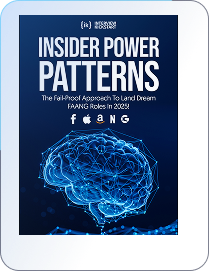A position as a senior Java developer at a top tech firm requires at least 5 to 8 years of experience. Recruiters will expect you to be well-versed in Java concepts. When it comes to interviews, the Java interview questions for software developers with 5 years of experience are more sophisticated and project management-focused than those for entry-level candidates.
As a Java developer with 5+ years of experience, you should be well-versed in all of Java programming’s fundamentals and trickiest concepts.
In this article, we will cover the key topics that you should prepare for your interview. We also share some tips that will help you ace the interview.

To prepare for an advanced Java interview, you need to cover a wide range of topics. Some of them are:
| Core Java | Advanced Java | Frameworks | |
| String Handling | JSP | Struts | |
| OOPs Concepts | JDBC (Java Database Connectivity) | Spring (MVC, Core, JDBC) | |
| Multithreading | Servlets | Web Services (SOAP and REST) | |
| Generics | JSF | ||
| Collection Framework | Hibernate ORM Framework | ||
| Synchronization | |||
| Serialisation & De-serialisation | |||
Here are some Java concepts explained in detail to help you prepare for your interview:
We have curated the top Java interview questions for professionals holding 5 years of experience and categorized them according to work experience and important topics such as OOP and thread handling.
Here are some of the most commonly asked Java Interview Questions and Answers for 5 years of Experience.
Answer: Most developers have stuck to the 2014 release, Java 8. It is free for commercial use and has many significant features such as functional interfaces and static methods. It has made programming more simplified and efficient with functional interfaces to object-oriented interfaces.
Answer: You can answer this Java interview question for software developers by stating that a Java Class is a category for Java objects presenting similar properties or methods. It is commonly used as a blueprint for design in object-oriented languages. The most common classes of Java used in app development are static, final, concrete, inner, abstract, and POJO.
Answer: The most significant concepts to understand in wrapper classes are the eight primitive types of wrapper classes and where they are best used. It is important to note that it is final and immutable once a wrapper class is assigned.
Answer: The four access modifiers in Java are default, public, private, and protected. They are used in determining access levels to keywords or information stored in a class.
Answer: You can answer this Java interview question for software developers by stating that a JVM, or a Java Virtual Machine, runs Java on a device. A JDK, or Java Development Kit, is a software development package used to create tools that can be run on phones and tablets.
Answer: Platform independence implies that your program can run on any operating system. This adaptability trait makes Java a superior programming language.
Answer: An immutable string is thread-safe. If one does not make a string immutable, then a change in one reference will inevitably affect the values of other references.
Answer: There are some basic differences between an abstract class and an interface. The first is method implementation. While an abstract class can have method implementation but an interface can not. An abstract class can implement an interface.
Answer: You can answer this Java interview question for software developers by stating that Java has several conditional operators. A ternary operator is a conditional operator responsible for deciding which values will be assigned to a variable.
Answer: You can answer this Java interview question for software developers by stating that serialization and deserialization are data-handling concepts related to stream handling in Java. Serializing an object means converting it to a byte stream to save or relocate it to another device. Deserializing is the process of undoing the serialization process.
These are some frequently asked Java interview questions for software developers with 3-5 years of experience:
|
class A { Â Â synchronized void m1() Â Â { Â Â Â Â System.out.println(“In m1 A”); Â Â } Â Â void m2() Â Â { Â Â Â Â System.out.println(“In m2 A”); Â Â } } |
Here are some Java OOPs interview questions for developers who have 5 years of experience::
|
public class Demo{  public static void main(String[] arr){     System.out.println(“Main1â€);  }  public static void main(String arr){     System.out.println(“Main2â€);  } } |
When preparing for your Java Advanced interview, you should also practice some Java Thread interview questions and answers. Here are some sample Java Thread interview questions:
Study every aspect of a Java interview for developers with 5 years of experience. Join IK’s Full-Stack Engineering Interview Masterclass to upgrade your Java interview skills.
We will teach you programming data structures and algorithms, systems design, and specific domain know-how about JavaScript, along with in-depth preparation for behavioral and leadership interview rounds.
Our experts recommend practicing mock interviews and Java interview questions before you face the actual interview to boost your confidence and prepare you for all kinds of interview situations.
At Interview Kickstart, you can practice mock interviews with experts and hiring managers from FAANG companies. Their valuable feedback has gone a long way in helping Java professionals such as yourself crack tech interviews at the top FAANG companies.
Q1. How Important is Understanding Java 8 Features for Interviews?
Very important. Java 8 introduced significant features such as functional interfaces, lambda expressions, the Stream API, and new Date and Time APIs which are commonly asked in interviews.
Q2. What is the Difference Between JVM, JDK, and JRE?
The JVM (Java Virtual Machine) runs Java bytecode on any device, while JDK (Java Development Kit) is a software development package used to create Java applications. On the other hand, the JRE (Java Runtime Environment) provides libraries, Java Virtual Machine, and other components to run applications written in Java.
Q3. How can you Achieve Thread Safety in Java?
Thread safety can be achieved using synchronized blocks/methods, using volatile keyword, and atomic classes from java.util.concurrent package.
Q4. What is a Ternary Operator in Java?
The ternary operator is a shorthand for the if-else statement. It is used to evaluate a boolean expression and return one of two values. Syntax: condition ? value1 : value2.
Q5. Can you Explain Method Overloading in Java?
Method overloading is a feature that allows a class to have more than one method with the same name but different parameters.
Related reads:
Attend our free webinar to amp up your career and get the salary you deserve.

693+ FAANG insiders created a system so you don’t have to guess anymore!

100% Free — No credit card needed.

Time Zone:






Get your enrollment process started by registering for a Pre-enrollment Webinar with one of our Founders.

The 11 Neural “Power Patterns” For Solving Any FAANG Interview Problem 12.5X Faster Than 99.8% OF Applicants
The 2 “Magic Questions” That Reveal Whether You’re Good Enough To Receive A Lucrative Big Tech Offer
The “Instant Income Multiplier” That 2-3X’s Your Current Tech Salary

The 11 Neural “Power Patterns” For Solving Any FAANG Interview Problem 12.5X Faster Than 99.8% OF Applicants
The 2 “Magic Questions” That Reveal Whether You’re Good Enough To Receive A Lucrative Big Tech Offer
The “Instant Income Multiplier” That 2-3X’s Your Current Tech Salary
Just drop your name and email so we can send your Power Patterns PDF straight to your inbox. No Spam!
By sharing your contact details, you agree to our privacy policy.
Time Zone: Asia/Dhaka

We’ve sent the Power Patterns PDF to your inbox — it should arrive in the next 30 seconds.
📩 Can’t find it? Check your promotions or spam folder — and mark us as safe so you don’t miss future insights.
We’re hosting a private session where FAANG insiders walk through how they actually use these Power Patterns to crack interviews — and what sets top performers apart.
🎯 If you liked the PDF, you’ll love what we’re sharing next.
Time Zone:

